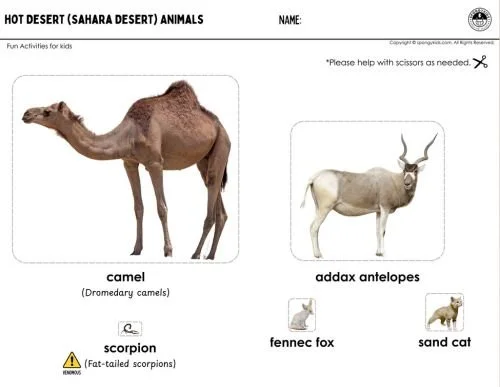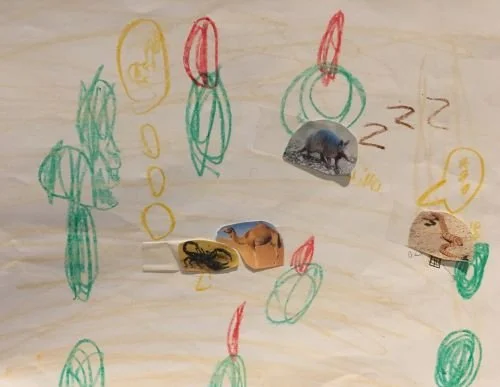Animal Habitats For Kids: Hot Desert (Sahara Desert)
Fun Hands-On Science Activities with Kids
Activities for Kids to Explore Hot and Dry Animal Habitats!
Main Idea
Draw the scenery of the hot desert habitat and add animals! We focused on the Sahara Desert.
Activity Prep
Download & print the PDF below
Drawing & coloring tools (crayons, colored pencils, markers, paints & brush etc)
Scissors (*Please help with scissors as needed.)
Glue or Tape
Books or videos about hot desert habitat
What is the Sahara Desert?
The Largest Hot Desert in the World
There are two main types of deserts: hot deserts and icy deserts. The Sahara Desert is the largest hot desert in the world. It covers much of North Africa.
Observation and Discussion
Take a moment to look at these pictures of the Sahara Desert. What do you see? What do you think about them?




How to Use
Step 1: To learn about the animal habitat of the hot desert, start by reading books or watching educational videos. There are many options available. These are some excellent video examples.
Step 2: Download and print the PDF.
Step 3: First, observe the animals on the printout. If you don’t recognize some of them, ask what they are!
Step 4: Look at books or images of hot deserts, then draw a hot desert on another sheet of paper. (*The desert we focused on was the Sahara Desert)
Step 5: Carefully cut out the animals. (*Please help with scissors as needed.)
Step 6: Attach animals to your habitat drawing using glue or tape.
Here is an example that my son did in first grade. (*I chose the wrong animal back then! Armadillo habitats are in North, Central, and South America.) The animals that live in deserts vary by region. We created material focused on the animals that live in the Sahara Desert.
Disclaimer
The videos we watched have been sourced from YouTube channels.
SciShow Kids / National Geographic / BBC Earth
Full credit goes to these original creators for their excellent content and creativity. This site aims to provide educational materials while respecting contributors' intellectual property. For the original videos and more resources, visit these URLs.



